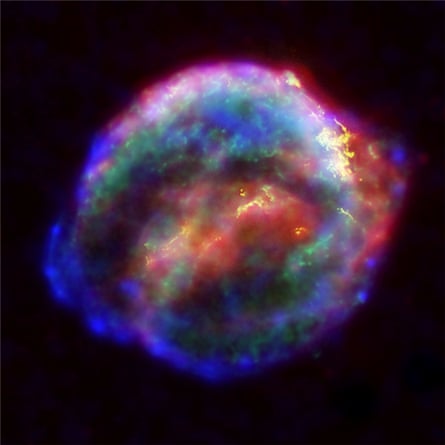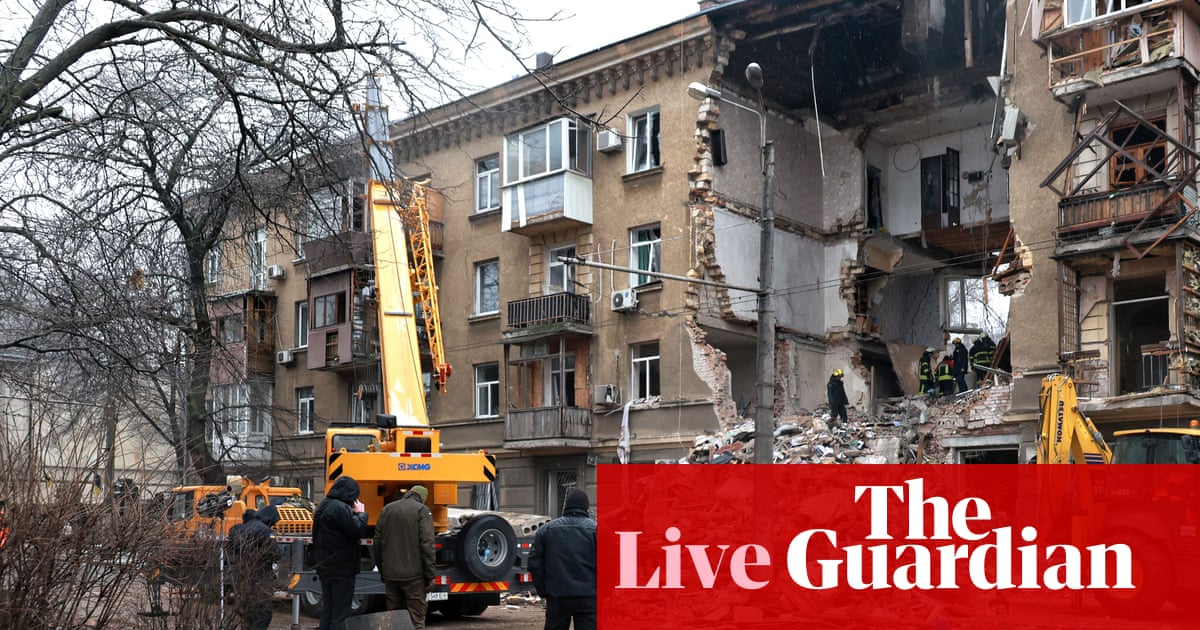Astronomers have cast doubt on a Nobel prize-winning theory that the expansion of the universe is accelerating, suggesting that instead it may be slowing down.
If confirmed, this would have profound implications for the fate of the universe, raising the possibility that rather than expanding for ever, the universe could ultimately enter a reverse big bang scenario known as the big crunch. The astronomers behind the work say their observations also imply that dark energy – the mysterious force thought to be propelling the expansion of the universe – is weakening over time.
“Our study shows that the universe has already entered a phase of decelerated expansion at the present epoch and that dark energy evolves with time much more rapidly than previously thought,” said Prof Young-Wook Lee, of Yonsei University in South Korea, who led the work. “If these results are confirmed, it would mark a major paradigm shift in cosmology since the discovery of dark energy 27 years ago.”

The paper is likely to be greeted with heavy scepticism, but with the influential Desi consortium independently reaching a similar conclusion earlier this year, a fierce debate is opening up in cosmology over the nature of dark energy and the probable fate of the universe.
The latest work focuses on the reliability of observations of distant supernovae (exploding stars) that led to the discovery of dark energy, work that was awarded the 2011 Nobel prize in physics.
“It has been 27 years since the discovery of dark energy and the accelerating universe,” said Lee. “There was a key assumption, however, which turned out to be incorrect. It’s like doing up a shirt with the first button fastened incorrectly.”
Until the 1990s, it was assumed that gravity would act as a cosmic brake, slowing down the expansion of the universe by pulling galaxies back towards each other.
This view was upended when astronomers made the first estimates of the expansion of the universe using observations of exploding stars, known as type 1a supernovae. These supernovae were thought to be uniquely uniform in the light they emitted, meaning they could serve as “standard candles”, whose brightness was a proxy for their distance. This allowed astronomers to measure how fast different parts of the universe were receding by measuring the redshift (the stretching of light due to the expansion of the universe) of supernovae across the cosmos.
The observations revealed that distant supernovae were dimmer than expected for a universe whose expansion was slowing down. This led astronomers to conclude that the expansion of the universe had sped up – and was still accelerating.
However, the latest findings offer an alternative explanation. By estimating the ages of 300 host galaxies using a different method, the team concluded that there are simply variations in the properties of stars in the early universe that mean they produce, on average, fainter supernovae.
Correcting for this systematic bias still results in an expanding universe, but suggests that the expansion has slowed down and that dark energy is waning, the analysis concluded. If dark energy keeps decreasing to the point where it becomes negative, the universe is theoretically predicted to end in a big crunch.
Prof Carlos Frenk, a cosmologist at the University of Durham, who was not involved in the latest work, said the findings were worthy of attention. “It’s definitely interesting. It’s very provocative. It may well be wrong,” he said. “It’s not something that you can dismiss. They’ve put out a paper with tantalising results with very profound conclusions.”
The findings are published in Monthly Notices of the Royal Astronomical Society.

 2 months ago
42
2 months ago
42

















































